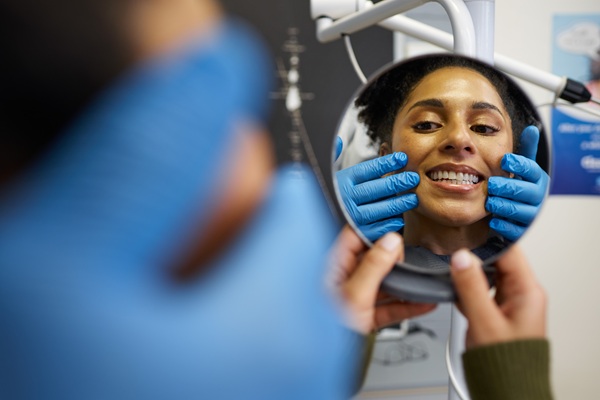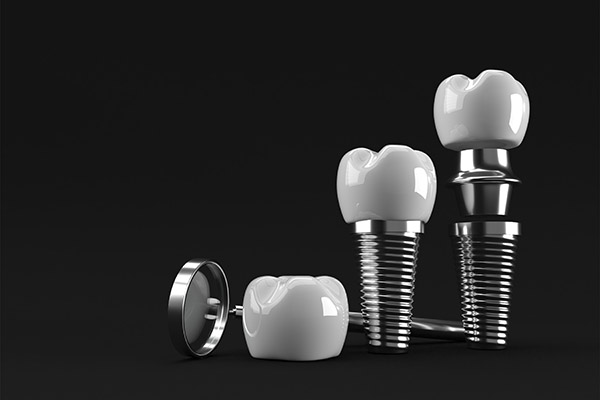Laser Dentistry for Gum Disease

Laser dentistry involves the use of lasers to treat a variety of dental conditions. It started being used in clinical dental practice for procedures decades ago. Laser dentistry may offer a more comfortable treatment option for many dental procedures involving soft or hard tissue. This is in comparison to drills as well as other non-laser tools. Laser dentistry can be recommended by your oral health care provider to treat a number of common conditions.
Laser dentistry
Lasers have revolutionized many industries and fields, and oral care is no exception. Lasers can be used by dental providers to treat tooth decay and gum disease. Lasers also help in teeth-whitening procedures and biopsy or lesion removal. An increasing number of dental practitioners are opting for the use of lasers to treat gum disease because of their benefits.
Periodontal or gum disease
Gum disease, also commonly referred to as periodontal disease, is an infection of the bone as well as supporting tissues that hold the teeth in place. This condition usually affects people in their 30s and 40s. It is caused by a wide range of factors. These include poor oral hygiene, chronic illnesses like diabetes and particular medications. Other common causes include genetic susceptibility and smoking.
One of the most common treatment options for periodontal disease is scaling and root planing. This is a nonsurgical method that involves cleaning the teeth’s surfaces and their root which may be exposed due to gum recession. It helps remove plaque, tartar and bacteria from the gum surrounding the root. This method promotes the healthy regeneration of the gum tissue.
Alternatively, the dental practitioner may decide to perform gum flap surgery. It entails cutting the gum tissue surgically. It will then be flapped back in order to allow for deep cleaning around the roots underneath. The gum tissue will then be sutured back into place and left to heal.
Laser therapy
When it comes to periodontal laser therapy, the oral health care provider will use a dental laser to access and then remove the inflamed gum tissue from around the tooth root. Root scaling will begin after the removal of the infected tissue and the exposure of the root. The process involves scraping off the calculus as well as the plaque built up below the gumline and around the tooth root. The root will then be smoothed using particular instruments. This will help remove any rough spots that may attract bacteria and end up causing infections later on. The area between the root and the gum can then regenerate during the healing process.
Bottom line
Laser dentistry is a good option for people suffering from gum disease. Using lasers to excise diseased gum tissue has numerous advantages. Lasers often target the diseased areas accurately and no general anesthetic is usually needed. The time it will take to heal and recover will also be shorter.
But gum disease can be prevented by keeping the mouth and teeth clean. You should prioritize proper brushing and flossing. Using antibacterial toothpaste as well as a mouthwash to kill bacteria will help. You should also ensure that you visit your dentist at least two times a year or as recommended for cleanings and checkups.
Are you considering laser dentistry in the Carmel area? Get more information at https://www.carmelsmilesdentist.com.
Check out what others are saying about our services on Yelp: Read our Yelp reviews.
Related Posts
Professional dental cleaning are integral for keeping your mouth healthy. They remove plaque and tartar (hardened plaque) that regular brushing and flossing cannot, leaving your teeth and gums refreshed. Maintaining healthy habits that keep your smile bright and strong is essential to make the most of a dental cleaning. Caring for your teeth properly after…
If you are considering implant dentistry or are about to go through the process and want to learn more about it, it is helpful to first understand the basics. Here, we will discuss the various parts that make up an implant dentistry restoration and highlight how they all work together to complete the restoration.An implant…
If you have opted for implant dentistry to replace your missing teeth, you will need to decide on fixed or removable restorations. Read on to learn about implant dentistry and your options. Removable implant-supported restorations can be snapped on and off the abutments anytime there is a need to take off. In contrast, fixed restorations…
Dentures have long provided an effective solution for patients with missing teeth, offering improved oral function and facial appearance. Today, advances in digital dentistry are transforming the way dentures are designed, fabricated, and fitted—offering greater precision, comfort, and natural aesthetics. This innovative approach represents a new era in restorative care, helping patients enjoy a confident…


